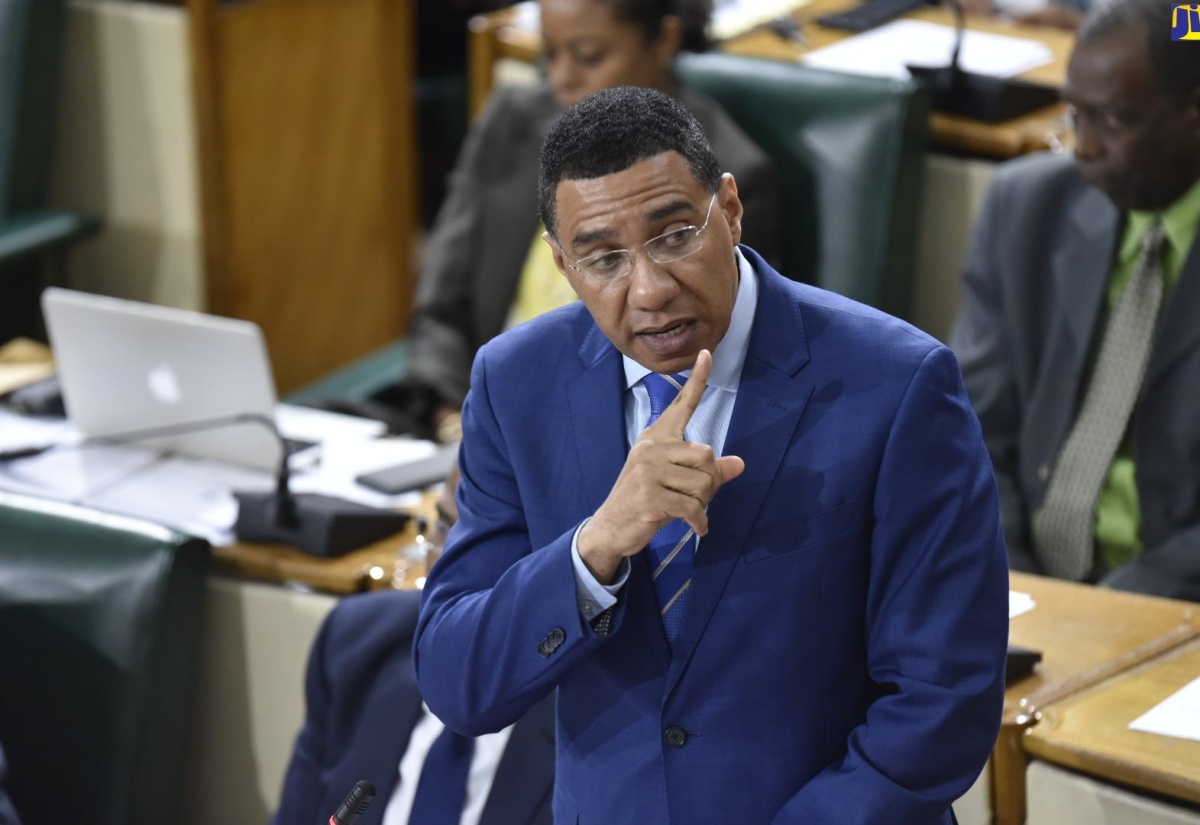House Approves Extension Of SOEs
By: , January 30, 2020The Key Point:
The Facts
- The resolutions – the Emergency Power, 2019 (Continuance) Resolution, 2020; the Emergency Powers (No.2), 2019, (Continuance) Resolution, 2020; and the Emergency Powers (No.3), 2019, (Continuance) Resolution, 2020 – were moved by Prime Minister, the Most Hon. Andrew Holness.
- With the approvals, the SOE declared on April 30, 2019 for St. James, Hanover and Westmoreland, which was scheduled to end on February 27, 2020, will now run until May, 28, 2020.
The Full Story
The House of Representatives on Tuesday (January 28), approved three Emergency Powers resolutions for extension of the States of Public Emergency (SOEs) for a further 90 days in St. James, Hanover, Westmoreland; Clarendon and St. Catherine North; and the South St. Andrew Police Division.
The resolutions – the Emergency Power, 2019 (Continuance) Resolution, 2020; the Emergency Powers (No.2), 2019, (Continuance) Resolution, 2020; and the Emergency Powers (No.3), 2019, (Continuance) Resolution, 2020 – were moved by Prime Minister, the Most Hon. Andrew Holness.
With the approvals, the SOE declared on April 30, 2019 for St. James, Hanover and Westmoreland, which was scheduled to end on February 27, 2020, will now run until May, 28, 2020.
The SOE for Clarendon and St. Catherine North, declared on September 5, 2019, and should have ended on February 18, 2020, will continue until May 19, 2020.
Likewise, the SOE for the South St. Andrew Police Division, which was declared on July 7, 2019 and was slated to end on February 4, will remain until May 5, 2020.
During the SOE, the security forces will have the power to search, curtail operating hours of business, restrict access to places and detain persons without a warrant.
It also gives them the power to stop and question persons, seize property, and control public gatherings and movements.
The Constitution provides that a period of public emergency can be declared by proclamation if the Governor-General is satisfied that action has been taken or is immediately threatened by any person or body of persons of such a nature and on so extensive a scale as to be likely to endanger public safety.
The Emergency Powers Act refers to the existence of a State of Public Emergency and empowers the Governor-General to make regulations during a period of public emergency.


